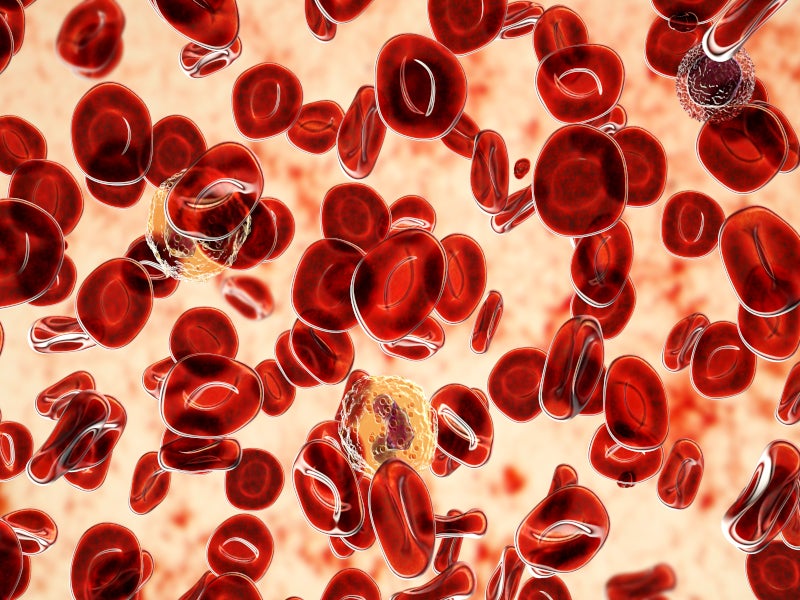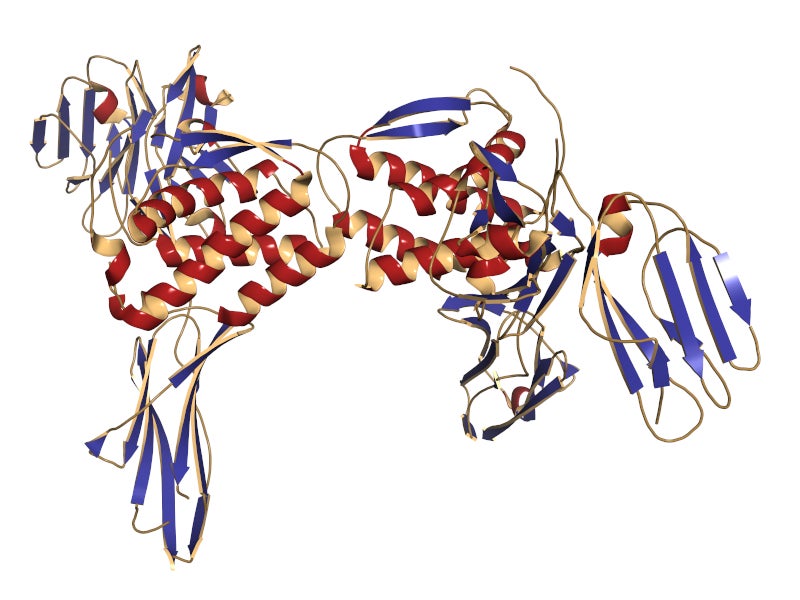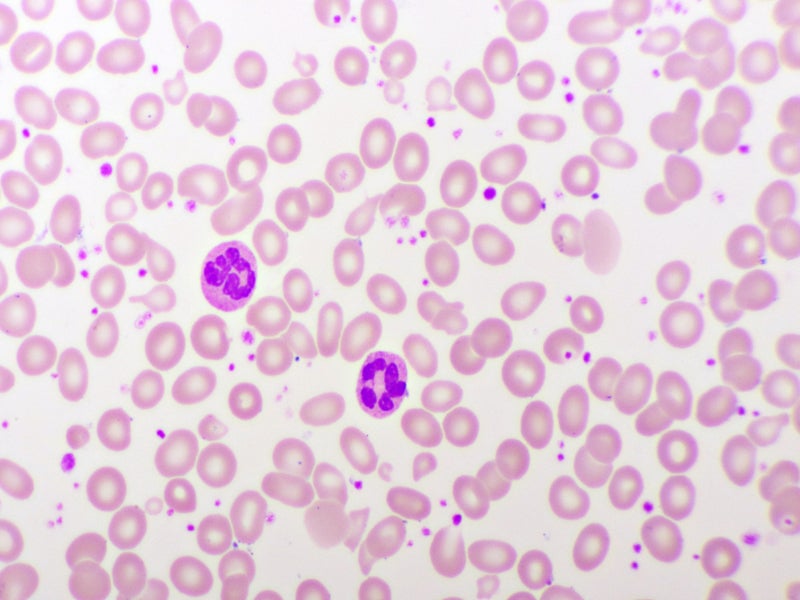VONJO™ (pacritinib) is a novel oral kinase inhibitor indicated for the treatment of adults with intermediate or high-risk primary or secondary myelofibrosis, a blood-related cancer marked by severe thrombocytopaenia and platelet counts less than 50×109/L.
Developed by biopharmaceutical company CTI BioPharma, VONJO is available as a 200mg oral gelatine capsule.
CTI BioPharma has chosen speciality pharmacies, National Cancer Institute (NCI) designated facilities and community oncology dispensing pharmacies for the supply and distribution of VONJO through the CTI Access™ programme.
Regulatory approvals for VONJO
In June 2021, the FDA granted priority review to a new drug application (NDA) submitted by CTI BioPharma for pacritinib. The NDA had a Prescription Drug User Fee Act (PDUFA) date of November 2021.
VONJO was given accelerated approval by the US Food and Drug Administration (FDA) in February 2022.
CTI BioPharma also submitted a marketing authorisation application (MAA) for the drug to the European Medical Agency (EMA), which was validated in July 2017.
The MAA was withdrawn in February 2019 after the EMA’s Committee for Medicinal Products for Human Use (CHMP) judged that the risk-benefit profile of pacritinib had not been established based on the available clinical data.
Myelofibrosis causes and symptoms
Myelofibrosis is an uncommon condition characterised by haematological abnormalities and bone marrow fibrosis. Primary myelofibrosis has no recognised causes, although secondary myelofibrosis can occur in people with a history of polycythaemia vera or essential thrombocythaemia.
Symptoms of the disease are caused by abnormalities in blood cell production and can include cytopaenia, infections, splenomegaly, and general systemic symptoms such as fever. Around 50% of individuals with primary myelofibrosis have a Janus-associated kinase 2 (JAK2) gene mutation, which is also prevalent in other myelofibrosis patients.
JAK2 signalling pathways create many cytokines and growth factors crucial for haematopoiesis and immunological functions, and its malfunction causes myelofibrosis progression. While the specific role of JAK2 signalling in the pathophysiology of myelofibrosis remains unknown, its apparent link with myelofibrosis has made it a viable therapeutic target.
VONJO’s mechanism of action
Pacritinib is an oral kinase inhibitor of both wild-type and mutant JAK2, as well as FMS-like tyrosine kinase 3 (FLT3). It works by inhibiting wild-type JAK2, mutant JAK2V617F, and FMS-like tyrosine kinase 3 (FLT3).
The drug has a larger inhibitory activity against JAK2 than related proteins such as JAK3 and TYK2 and does not inhibit JAK1 at clinically relevant dosages. It inhibits numerous cellular kinases such as colony-stimulating factor-1 (CSF1R) and interleukin-1 receptor-associated kinase 1 (IRAK1), whose therapeutic significance is unknown.
Clinical studies on VONJO
VONJO’s safety and efficacy was evaluated in the Phase III PERSIST-2 and PERSIST-1 clinical trials, as well as the Phase II PAC203 study.
The PAC203 Phase II dose-finding study was conducted in patients with myelofibrosis who had previously received ruxolitinib.
The PERSIST-1 trial was a randomised, open-label Phase III trial that compared the efficacy and safety of pacritinib with those of the best available therapy (BAT) such as ruxolitinib, excluding JAK inhibitors, in 327 patients with myelofibrosis.
The FDA’s approval of VONJO was based on the PERSIST-2 trial, which enrolled 106 patients with intermediate or high-risk primary or secondary myelofibrosis with splenomegaly and a platelet count less than or equal to 100×109/L. The patients were administered VONJO 200mg twice daily, 400mg once daily or BAT.
The study showed that 29% of the patients with severe thrombocytopaenia who were given VONJO 200mg twice daily achieved a ≤35% decrease in spleen volume from baseline, compared with 3% who received BAT. In addition, 23% of patients achieved a 50% reduction in total symptom scores, compared with 13% of patients treated with BAT.
The most common adverse reactions in the clinical trials were diarrhoea, thrombocytopaenia, nausea, anaemia, and peripheral enema, while most frequent serious adverse reactions included pneumonia, cardiac failure, disease progression, pyrexia, and squamous cell carcinoma of skin.
The accelerated approval given by the FDA requires CTI BioPharma to demonstrate VONJO’s clinical benefit in a confirmatory trial. As part of this, CTI BioPharma is conducting the PACIFICA trial, which is expected to be completed in mid-2025.
PACIFICA is a randomised Phase III study that will compare pacritinib with physician’s choice in patients with primary myelofibrosis, post polycythaemia vera myelofibrosis or post‑essential thrombocythaemia myelofibrosis with severe thrombocytopaenia and platelet count of 50,000/μL.
Marketing commentary on CTI BioPharma
Based in Washington, US, CTI BioPharma is a biopharmaceutical company focused on the development of novel targeted therapies for blood-related cancers.
In August 2021, CTI BioPharma signed an agreement with the open-ended DRI Healthcare Trust, under which the latter will provide $135m in funding with $50m in secured debt to be funded at closing, as well as $60m through tiered royalty on sales of pacrinitib following its approval.
The FDA’s approval of pacrinitib led to the completion of the transaction in March 2022. The transaction provided CTI BioPharma with the required funds for the commercial launch of VONJO.





